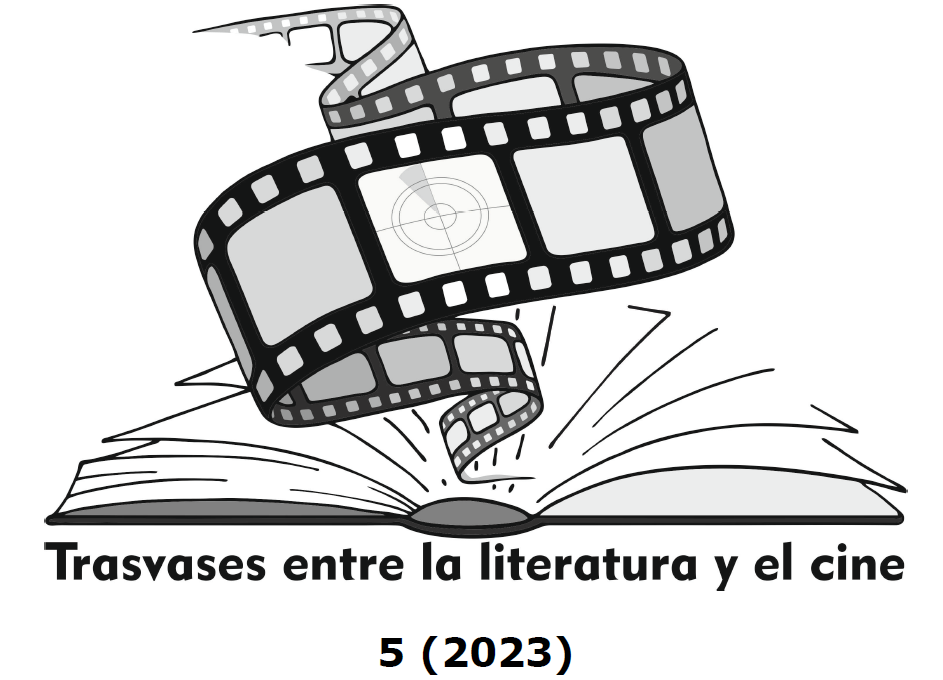Actancial readjustment in The Story of My Wife: from Milán Füst to Ildikó Enyedi
DOI:
https://doi.org/10.24310/tlc.5.2023.16513Keywords:
film adaptation, marriaage, jeloussy, The Story of My Wife, Literature, Cinema, Ildikó Enyedi, Milán FüstAbstract
This article examines The Story of My Wife (2021), a film adaptation by Ildikó Enyedi, based on the homonymous novel (1942) by Milán Füst, which is considered a key work of 20th century Hungarian literature. On the one hand, it aims to demonstrate how a successful transfer between literature and film takes place; on the other hand, it investigates the representation of the total failure of a marriage. Among the productive aspects when studying the adaptation process, the function of the characters and, in this particular case, the role played by the female figure stand out. In this way, both “the story” and “the woman” are highlighted: both the inherent differences between literary and filmic language, as well as the readjustments with respect to the protagonist's wife.
Downloads
Metrics
Publication Facts
Reviewer profiles N/A
Author statements
Indexed in
-
—
- Academic society
- N/A
- Publisher
- Universidad de Málaga
References
Aftab, Kaleem (2021), «Tenemos que aceptar el hecho de que no vamos a encontrar una respuesta», Cineuropa. [En línea: https://cineuropa.org/es/interview/407788/. Consultada: 15/03/2023].
Argullol, Rafael (2016), «El horizonte. El Gran Juego», en J. Balló y A. Bergala (Eds.), Motivos visuales del cine, Barcelona, Galaxia Gutenberg, págs. 319-323.
Balló, Jordi y Xavier Pérez (2005), Yo ya he estado aquí. Ficciones de la repetición, Barcelona, Anagrama.
Fejes, Réka (2021), «Enyedi Ildikó: A férjemen keresztül ismertem meg a nagy és erős emberek szelídségét és védtelenségét», Dívány. [En línea: https://divany.hu/offline/enyedi-ildiko-a-felesegem-tortenete-interju/. Consultada: 17/03/2023]
Füst, Milán (2009), La historia de mi mujer, trad. de T. Ruiz Rosas, Barcelona, Galaxia Gutenberg.
Gyürke, Kata (2021), «A tudattalan titkos tempója – interjú Enyedi Ildikóval», Fidelio. [En línea: https://fidelio.hu/vizual/a-tudattalan-titkos-tempoja-interju-enyedi-ildikoval--165922.html. Consultada: 17/03/2023]
Malpartida, Rafael (2015), «Subjetividad y adhesión emocional en dos adaptaciones de la novela al cine: La flaqueza del bolchevique y Caníbal, de Manuel Martín Cuenca», Signa, 24, págs. 125-148.
Malpartida, Rafael (2018), «La recepción y el canon de la literatura y el cine: sugestiones y replanteamientos», en R. Malpartida (Coord.) Recepción y canon de la literatura española en el cine, Madrid, Síntesis, págs. 17-53.
Malpartida, Rafael (2023), Diálogos entre la literatura española áurea, el cine y la ficción televisiva. Nuevas perspectivas de estudio en la era digital, Oxford/New York, Peter Lang.
Pérez Bowie, José Antonio (2008), Leer el cine, Salamanca, Universidad de Salamanca.
Sánchez Noriega, José Luis (2004), Diccionario temático del cine, Madrid, Cátedra.
Sánchez Noriega, José Luis (2022), La pantalla plateada. Ensayo sobre los espejos en el cine, León, Eolas Ediciones.
Stam, Robert (2014), Teoría y práctica de la adaptación, México, UNAM.
Vega, Sara (2021), «Cuando las mujeres puedan representar cualquier tema sin la mirada femenina podremos hablar de igualdad», Industrias del cine. [En línea: http://industriasdelcine.com/2021/12/17/ildiko-enyedi/. Consultada: 15/03/2023.]
Zecchi, Barbara (2012), «Introducción. La adaptación multiplicada», en B. Zecchi (Ed.) Teoría y práctica de la adaptación fílmica, Madrid, Editorial Complutense, págs. 19-62.
Downloads
Published
How to Cite
License
Copyright (c) 2023 Réka Havassy

This work is licensed under a Creative Commons Attribution-NonCommercial-ShareAlike 4.0 International License.
All authors published in this journal accept the following copyright terms:
a. Authors retain their authors´ rights (copyright) and grant First Publication Rights to the journal, which whill be published under a the Creative Commons Attribution-NonCommercial-ShareAlike 4.0 International (CC BY-NC-SA 4.0) license. All about this license is available in the following link: <http://creativecommons.org/licenses/by-nc-sa/4.0>
b. Authors may separately establish additional agreements for the non-exclusive distribution of the version of the work published in the journal (e.g. including it in an institutional repository, or publishing it in a book) with an acknowledgement of its initial publication in this journal.
c. Authors are allowed and encouraged to disseminate their work electronically (e.g. in institutional repositories or on their own website) as this can lead to productive exchanges, as well as earlier and more extensive citation of published work.
The author is responsible for obtaining permission from the copyright holder when using copyrighted materials.
This electronic journal is published by University of Málaga (UmaEditorial), thus it is necessary to cite the origin of any partial or total reproduction.








22.png)










